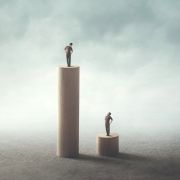- Abuse & The Abuser
- Achievement
- Activity, Fitness & Sport
- Aging & Maturity
- Altruism & Kindness
- Atrocities, Racism & Inequality
- Challenges & Pitfalls
- Choices & Decisions
- Communication Skills
- Crime & Punishment
- Dangerous Situations
- Dealing with Addictions
- Debatable Issues & Moral Questions
- Determination & Achievement
- Diet & Nutrition
- Employment & Career
- Ethical dilemmas
- Experience & Adventure
- Faith, Something to Believe in
- Fears & Phobias
- Friends & Acquaintances
- Habits. Good & Bad
- Honour & Respect
- Human Nature
- Image & Uniqueness
- Immediate Family Relations
- Influence & Negotiation
- Interdependence & Independence
- Life's Big Questions
- Love, Dating & Marriage
- Manners & Etiquette
- Money & Finances
- Moods & Emotions
- Other Beneficial Approaches
- Other Relationships
- Overall health
- Passions & Strengths
- Peace & Forgiveness
- Personal Change
- Personal Development
- Politics & Governance
- Positive & Negative Attitudes
- Rights & Freedom
- Self Harm & Self Sabotage
- Sexual Preferences
- Sexual Relations
- Sins
- Thanks & Gratitude
- The Legacy We Leave
- The Search for Happiness
- Time. Past, present & Future
- Today's World, Projecting Tomorrow
- Truth & Character
- Unattractive Qualities
- Wisdom & Knowledge
Outlooks & Setbacks Saturdays
Comparison Steals Our Joy
A new friend of mine has never been to my home. I have been to hers. There’s a big disparity between her home and mine.
She has a great sense of style in her home and has expensive furnishings. Her home is beautiful and big and grand! It has seven bedrooms.
I live in a townhouse with 2 bedrooms. It’s not fancy and home decor has never been my strong suit. I love my home but it most definitely is not a show-home style. A lot of my furniture is getting old and the house needs some updates. We have small kids right now and we have decided that it isn’t worth updating until they are a bit older.
Like I said, I love our home. It’s cozy and fits our life. However, I’ve been busy comparing my home to my new friend’s home. It’s caused me not to invite her over.
As I sit and think about all that, I realize how incredibly silly that is of me. Comparison is the thief of joy…and my worrying about comparing my home to her home is a silly reason not to invite her over.
The thing is, we never truly know someone else’s position.
We have decided to live in a smaller place that needs some updates so that we can afford to live without any debt. We have enough money to comfortably live here and still have enough disposable income to enjoy our life.
I don’t know my friend’s financial situation. For all I know, they are drowning in debt and chronically stressed out because they can’t afford their lifestyle.
Alternatively, they might have made really awesome financial decisions and be in a great position. Either way, her financial situation is irrelevant to mine. Comparing doesn’t help either of us - it just makes me feel bad.
The same is true about comparison in any other capacity. Comparing vehicles or body shapes or clothing or anything else is honestly just a waste of time. Yet we do it anyway! (Or at least I do it anyway!)
I’m working hard on not comparing myself to anyone else lately but it’s a challenge for me. I find it hard to be thankful when I’m busy comparing myself and always coming up short.
I’m generally so thankful for my home, but when I compare it to my new friend’s, all of a sudden I’m completely ungrateful! It’s horrible.
Take a look at yourself and ask yourself what area of life you are busy comparing to others. Then take a step back and stop it! Comparison is stealing your joy and your gratitude…and life is much better when we are thankful!
Interesting Fact #1
Social comparison theory suggests that people value their personal and social worth by assessing how they compare to others. First introduced in 1954, this psychological theory describes the comparison processes people utilize to evaluate their actions, accomplishments, and opinions in contrast to those of other people.
Interesting Fact #2
People make all kinds of judgments about themselves, and one of the key ways they do this is through social comparison or analyzing the self in relation to others.
Interesting Fact #3
Upward comparison takes place when we compare ourselves with those who we believe are better than or superior to us.
Quote of the day
“Comparison is the death of joy.” ― Mark Twain
Article of the day - Social Comparison Theory
People constantly evaluate themselves, and others, in domains like attractiveness, wealth, intelligence, and success. According to some studies, as much as 10 percent of our thoughts involve comparisons of some kind. Social comparison theory is the idea that individuals determine their own social and personal worth based on how they stack up against others. The theory was developed in 1954 by psychologist Leon Festinger. Later research has shown that people who regularly compare themselves to others may find motivation to improve, but may also experience feelings of deep dissatisfaction, guilt, or remorse, and engage in destructive behaviors like lying or disordered eating.
The Benefits of Comparison

When individuals compare themselves to others as a way of measuring their personal development or to motivate themselves to improve and, in the process, develop a more positive self-image, comparisons can be beneficial. It takes discipline, however, to avoid the pitfalls of negative comparison. In large part, how we react to comparisons depends on who we compare ourselves to: When we just want to feel better about ourselves, we tend to engage in comparisons to people worse off than we are, although this can become an unhealthy habit. When we want to improve, though, we may compare ourselves to people roughly similar to us but higher achieving in one trait or another.
How can comparison help you?
Social comparison can be highly beneficial when people use social networks to push themselves. In a study, friendly competition was highly effective in pushing people to exercise more, as peers pushed each other to keep up and do more. In such a "social ratchet effect," each person’s activity generates more activity among others. Social networks in which people simply offered each other positive encouragement were far less helpful.
Is it better to compare yourself to those doing better or worse than you are?
People generally engage in either upward or downward comparisons. In upward comparisons, we compare ourselves with those we believe are better than us in some way; in downward comparisons, we do the opposite. Research, unsurprisingly, finds that downward comparisons make us feel better about ourselves, but that there are dangers to each approach—insecurity and jealousy, or overconfidence and arrogance.
The Dangers of Comparison

Theodore Roosevelt called comparison “the thief of joy,” and he may have been right. Social comparison can motivate people to improve, but it can also promote judgmental, biased, and overly competitive or superior attitudes. Most people have the social skills and impulse control to keep their standards for social comparison to themselves, and not to act on any envy or resentment spurred by comparison-making. But their true feelings may manifest in other ways.
Why can comparisons make people feel bad?
Comparisons are likelier to make us feel bad when we make the error of only comparing ourselves to paragons of certain traits. For example, many people believe they have a less active social life than others. But when making such comparisons, people tend to compare themselves only to the most social people they know. Understanding this bias can help us make more realistic and motivating comparisons.
Is social media harmful to self-esteem?
Constantly checking social-media feeds full of images from parties, concerts, or other aspirational events can diminish self-esteem and contribute to depression. But some studies have found that such risks primarily affect those high in the trait of neuroticism, and others suggest that social-media use can reinforce self-esteem; for example, when people review their own images of good times with friends.
Comparison and Bias

Many people fall into the trap of positional bias, comparing "up" more often than "down" relative to their own standing. A fascination with celebrity culture and the prevalence of carefully-manicured social-media feeds only exacerbates the effect by exposing people to an endless stream of others’ seemingly perfect images, homes, jobs, skills, and families.
What’s the better-than-average effect?
It's been widely proven that people tend to believe that they are above average when it comes to desirable traits such as intelligence. But this the belief may not be so stable. For example, people are generally quick to report that they are smarter than average, but somewhat more humble when asked to place themselves in a specific percentile or to rate themselves on specific skills.
Are men or women more likely to think they’re better than average?
Two-thirds of Americans believe their intelligence is above average, but men are much more likely to inflate themselves than women; in surveys, more than 70 percent of men state that they are smarter than average, compared to about 60 percent of women, and they are much more likely to “strongly agree” that they are smarter than average.
Question of the day - What area of your life do you tend to compare yourself in most?
Thanks & Gratitude
What area of your life do you tend to compare yourself in most?












